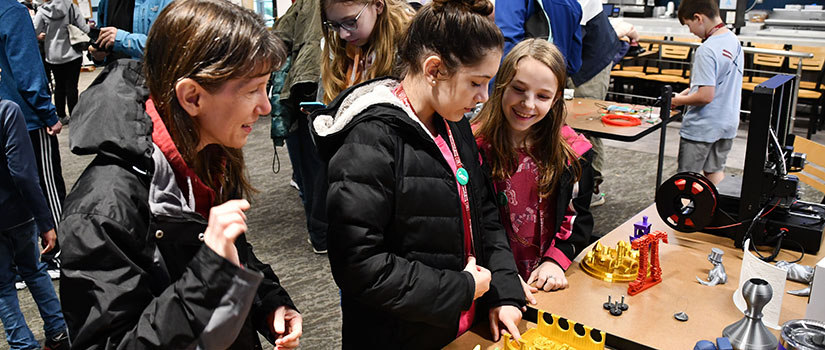Civil and Environmental Engineering Research Assistant Professor Sona Gholizadeh is studying the influence of family on student interest and persistence in engineering through a nearly $350,000 grant funded by the National Science Foundation. She hopes that the study, “Generational Family Patterns and Engineering Entry and Persistence: A Bowen Family Systems Approach,” will aid the STEM recruitment process and ultimately increase interest in those fields.
Gholizadeh is principal investigator for the research, which is an interdisciplinary study between the engineering and counselor education programs. Her team consists of two Ph.D. students and one master’s student from the University of South Carolina College of Education. Her team also involves a mentor from counseling education and an advisory board with expertise in career counseling, engineering education, counselor education, undergraduate engineering recruitment and retention programming, advising, and educational research design.
The dynamics of American families are changing, but are we changing anything that relates to student recruitment and retention based on those changes? Insight from this study can help us adapt our process to maintain interest in STEM fields.
- Sona Gholizadeh
The research is guided by the Bowen Family Systems Theory, a concept in which the human family is a living system where both individual members and the group as a whole influence one another. The theory is often used in the counseling field to study mental health patterns but has not previously been used as a predictor in STEM education. Gholizadeh will use this theory to explain how intergenerational family patterns and attitudes contribute or hinder undergraduate academic and career decisions in engineering fields.
The team is currently in the first of the three-year study. During the initial phase, researchers are interviewing 10 undergraduate engineering students identified by faculty as having a variety of skills and experiences, working well on a team and being involved on campus. Through two rounds of interviews, researchers will collect data on family life, beliefs about careers, and the extent to which students were supported and prepared by their families.
“This research is about generational patterns and the family’s influence on student choices with regard to their majors and careers,” Gholizadeh says. “We want to see what is going on in the family system, across multiple generations, and how those behaviors and values impact student choices.”
The results from the interview phase will be used in a quantitative study during year two. In this phase, the team will distribute a survey to all undergraduate engineering students examining how family influenced their success and persistence in their studies. Data from the interviews will help the team understand findings from the survey.
Researchers will focus on data analysis and dissemination in the third year. The overall results will be used to personalize student recruitment and advisement processes by identifying student needs and tailoring methods of reaching those students, such as cases of students who lack family support.
“The dynamics of American families are changing, but are we changing anything that relates to student recruitment and retention based on those changes? Insight from this study can help us adapt our process to maintain interest in important STEM fields,” Gholizadeh says.
Gholizadeh’s research interests include retention of engineering students from underrepresented groups, student interactions with peers and faculty, student wellness and mental health, and systems thinking and analysis.
